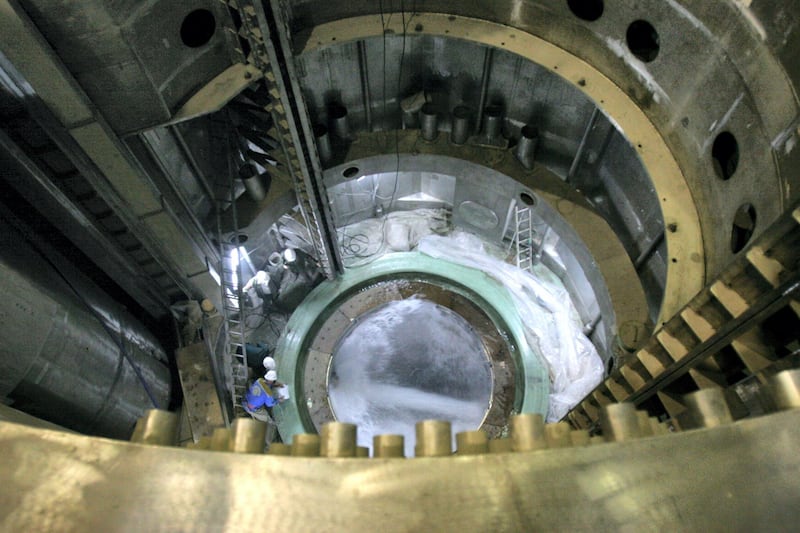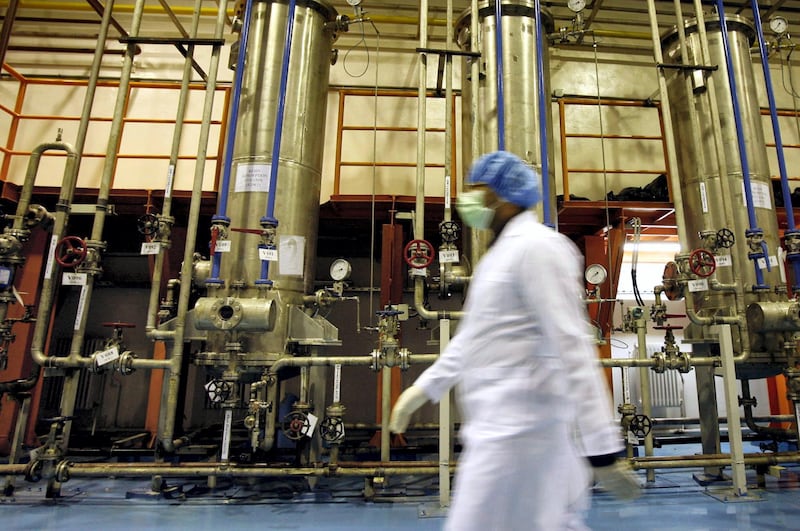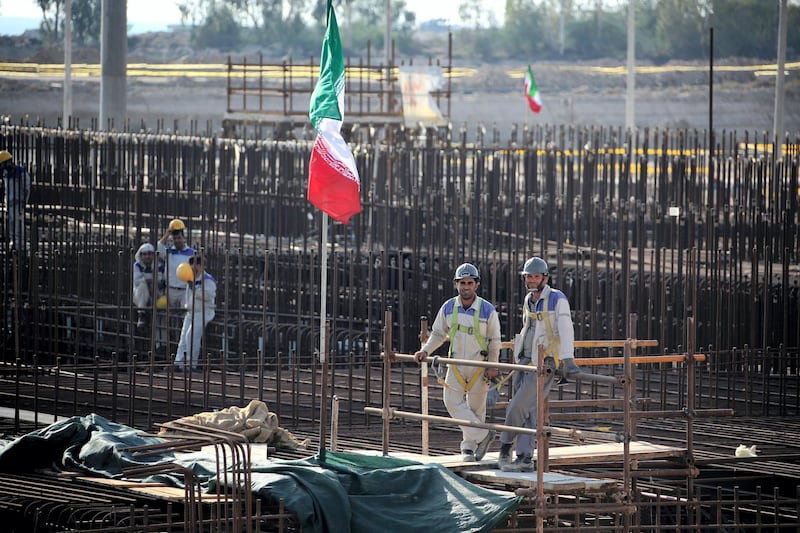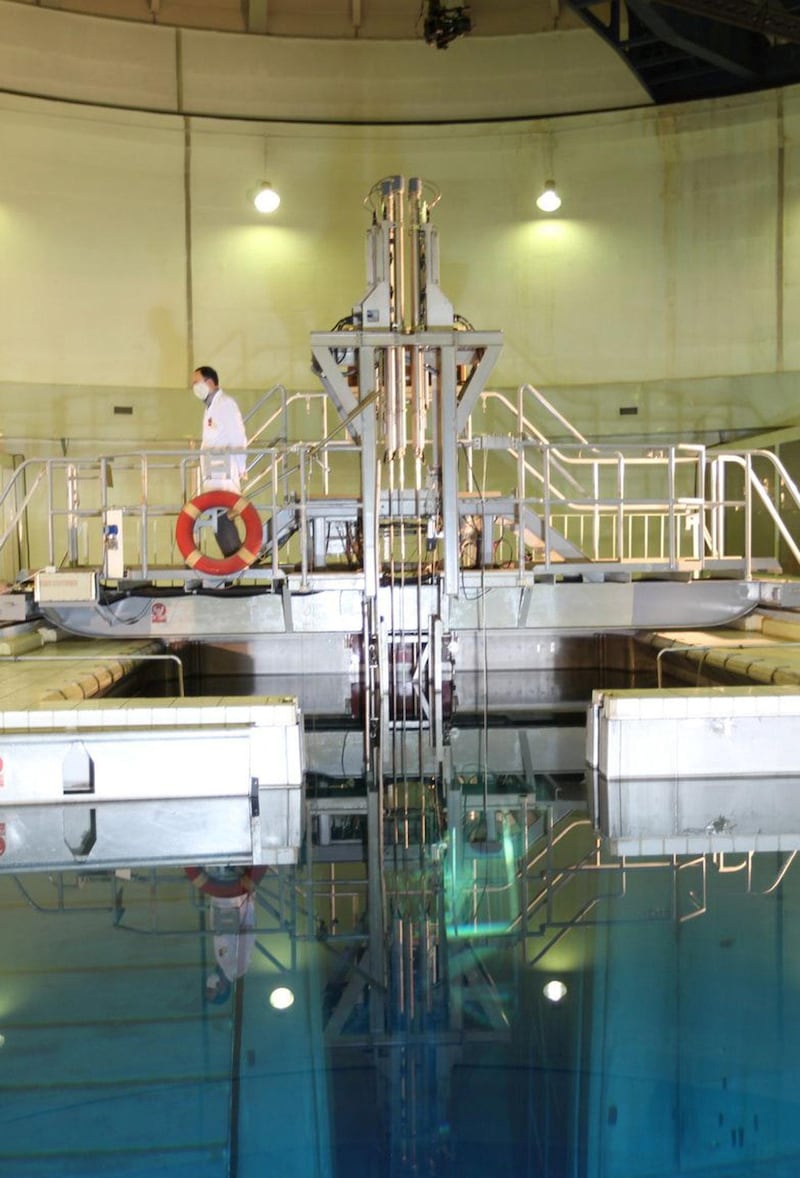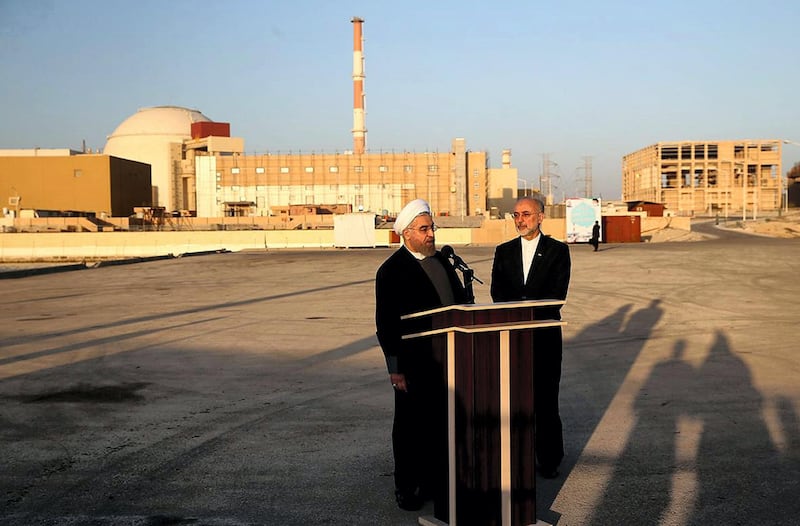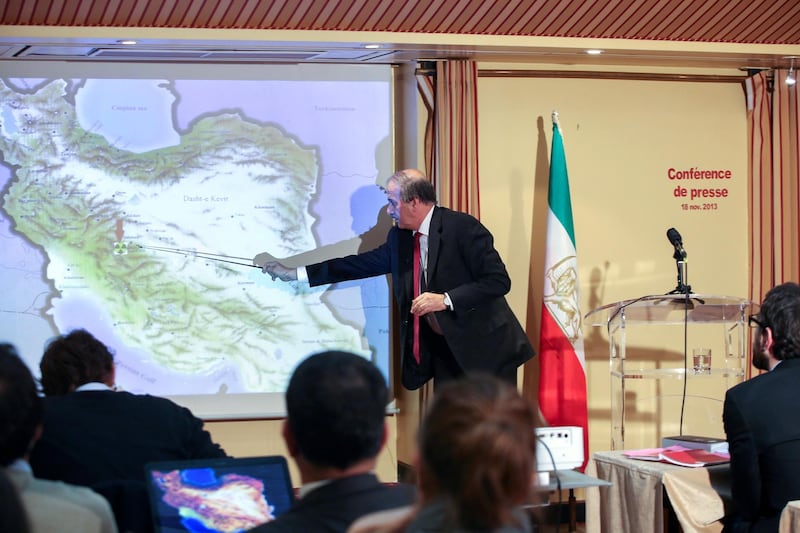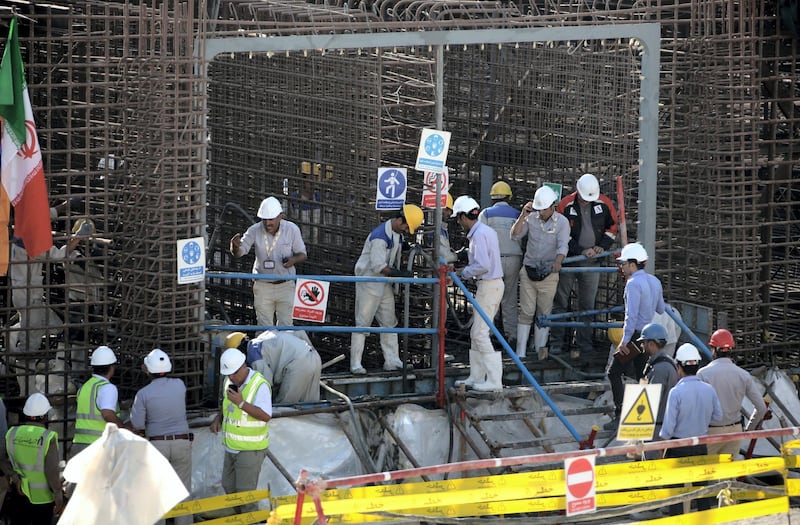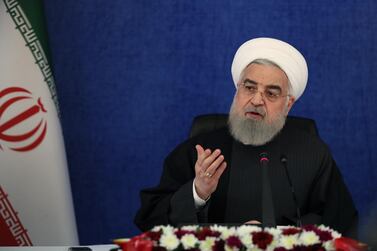Senior officials from France, Germany and the UK visited GCC countries this week to discuss Iran before the inauguration of US president-elect Joe Biden.
Mr Biden's policy towards Iran is expected to differ significantly from his predecessor, Donald Trump.
Iran has repeatedly breached the 2015 nuclear deal it signed with world powers to limit its nuclear ambitions, and its relations with the US have deteriorated dramatically.
Iran began breaking the deal in 2019 after Mr Trump withdrew the US from it in 2018 and renewed heavy economic sanctions.
The three major European powers have consistently urged Iran to return to the 2015 accord, but to no avail.
They have also called on Iran not to squander the chance of diplomacy with a US administration that is more likely to engage with it.
“Good E3 consultations with our Saudi partners on how to deal with shared challenges in the region, including tackling Iran’s systematic non-compliance with its nuclear commitments,” said the UK’s ambassador to Saudi Arabia, Neil Crompton.
Mr Biden’s administration has indicated that it wants to return the US to the nuclear deal, something Tehran also says it will do if sanctions are lifted.
A key criticism from some was that the deal was not strong enough, while others say the talks leading up to the pact failed to consistently involve GCC countries such as the UAE and Saudi Arabia.
Dr Cinzia Bianco, a visiting fellow at the European Council on Foreign Relations, said the visit of the German, British and French officials was from a desire to take into account the concerns of GCC countries to find a more sustainable solution to tension with Iran, and to address the nuclear deal's limits.
"The sense of this visit is to show that there is the willingness to engage the regional players in the debate and the plans for diplomacy with Iran," Dr Bianco told The National.
She said that no one wanted a military escalation in the region, especially given the economic and health issues from the Covid-19 pandemic.
“Everyone is now in a position that it’s interesting to explore avenues for stability in a way that is sustainable,” Dr Bianco said.
Foreign ministers from the three countries warned Iran, after its latest breach of the deal, that it could compromise the chance for diplomacy with the Biden administration.
They find themselves in a delicate situation, often in the middle of highly contrasting views about how to deal with Iran.
“It is a difficult balancing act, but also there is a very consistent line that has been building up and establishing itself in Europe, which is very pragmatic and is also very results-oriented in a way that I think helps a lot to navigate the different pressures and the different positions,” Dr Bianco said.
Even in the last days of its tenure, Mr Trump’s administration has refused to back down from its pressure campaign on Tehran and has sanctioned entities and people related to Iran.
